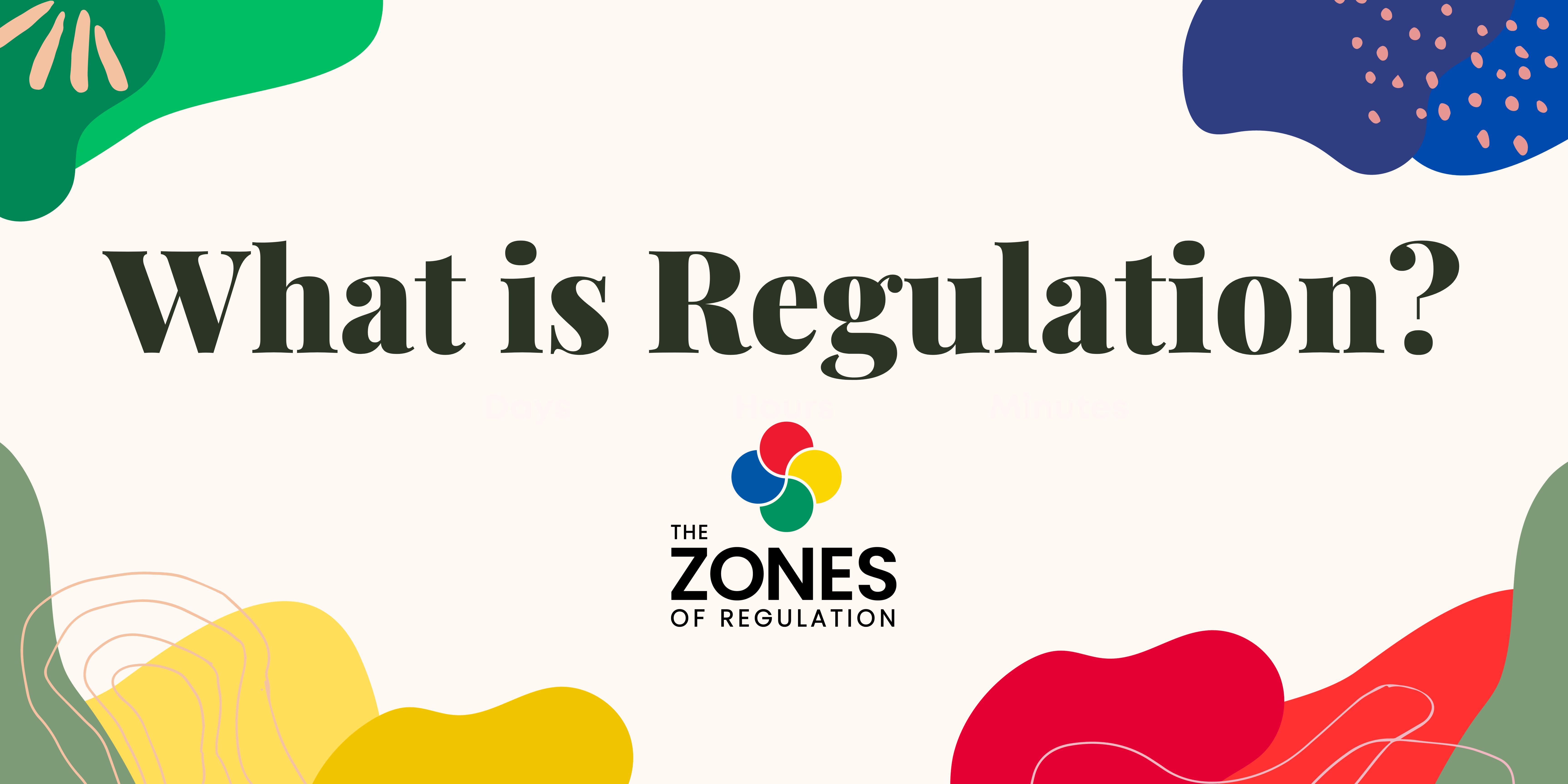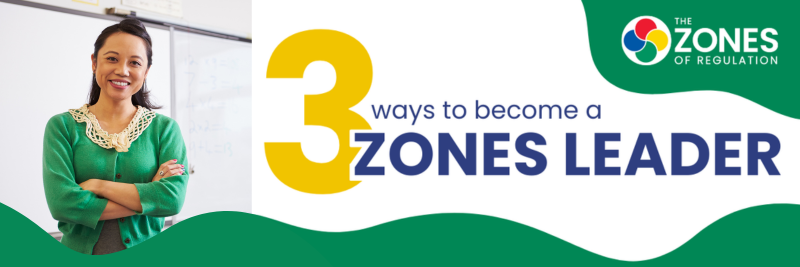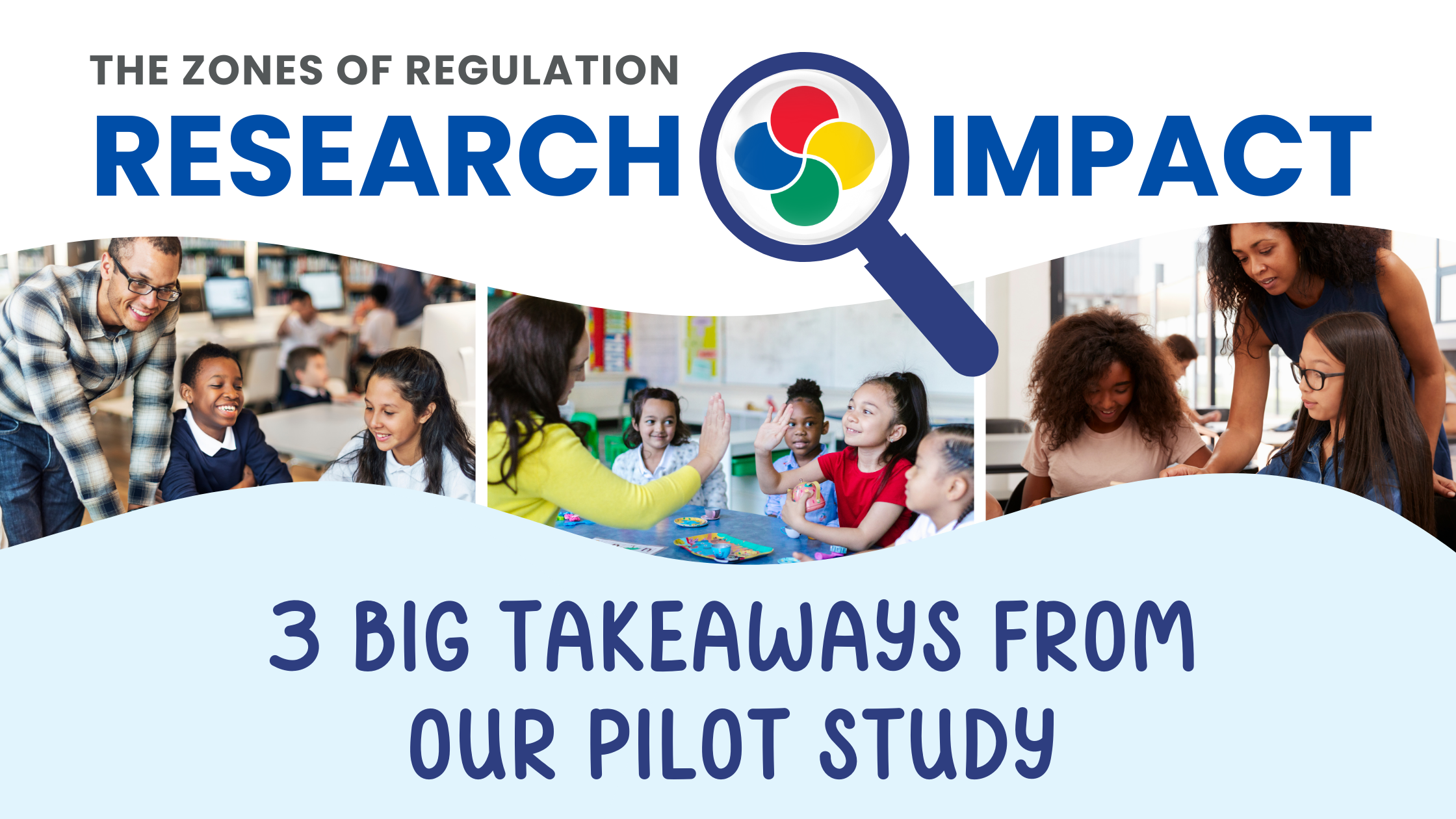This blog is an excerpt from the Adult Learning Modules in The Zones of Regulation Digital Curriculum and the Getting Into The Zones of Regulation curriculum companion guide.
There has been a lot of buzz about ‘regulation’ lately, especially in educational spaces. But, what exactly does regulation mean?
Most simply defined, regulation is to adjust, manage or control something so it works well. When applied to humans, regulation can go by many names, such as “self-control,” “self-management,” “emotional control,” “anger management,” or “impulse control.” These terms all describe a person’s ability to adjust their state of alertness, energy level, and emotions to help them attain personal goals, meet the demands of the situation around them, and gain a sense of well-being. Physiologically, when we are regulated, our brain and body integrated via the nervous systems work together to manage the situation at hand.
Ways We Regulate
We can regulate in one of two ways, self-regulation, or co-regulation. Self-regulation is independently managing feelings and states to attain goals (whether personal, social, or academic/professional), meet the demands of our situation, and support a sense of well-being. Co-regulation is the process of connecting, or being attuned, with a social partner for support in attaining goals, meeting demands, and supporting a sense of well-being. Co-regulation is something we can both provide as well as receive. To understand the difference, let’s consider the following example: A student in the classroom is feeling frustrated trying to solve a math equation.
Self-regulation: Arjun independently works through his feelings of frustration and finds a strategy (commonly referred to as “regulation tool”) that allows him to complete the equation. He takes a couple deep breaths and uses positive self-talk (“I can do this. I’m going to take some deep breaths and try again.”) to guide him through the work.
Co-regulation: Daniella raises her hand and with a heavy sigh shares her frustration with her teacher, “I don’t get this.” The teacher, attuned to Daniella’s feelings, supports her well-being by offering encouragement and providing further teaching to help clear up any confusion.
As our metacognitive thinking skills develop, we become more skilled at self-regulation, but even as adults we co-regulate. Have you ever vented to a colleague about a work situation that is frustrating you, or leaned on a loved one for a hug and pep talk when you’re feeling sad? We all need co-regulation with and from others for support. At The Zones of Regulation, we gravitate to using the broader term “regulate/regulation,” (rather than self or co-regulation) because it best captures the fluidity between the ways we all experience regulation.
MYTH: Regulation looks like a “calm” body.
REALITY: Regulation can look lots of different ways, and takes into account our situation, task/job, and goals. Regulation might look like someone pumping themselves up for a big event, such as swimmer Michael Phelps swinging his arms and hitting his shoulder before a race. It can look like someone pacing or flapping while listening, or controlling our impulses during a triggering event. There is no one way that regulation looks!
Expect Dysregulation
As we build regulation competencies within ourselves and our learners, it’s important to keep in mind that no one regulates perfectly. All of us will inevitably have times when we struggle to regulate, which is dysregulation. For example, who hasn’t stayed up way too late watching a movie when you know you need to wake up early, had your anxiety and/or stress impact your productivity at work by ruminating on a problem, or sent that email in the heat of the moment instead of waiting to push “send.”
As we build our emotional awareness and regulation skills, we gain a deeper understanding of what is happening in the moments when our regulation is not quite working for us. This awareness helps us to grow in our regulation, and to move on with more ease. Make sure to give yourself, as well as your learners, grace when dysregulation occurs – it is expected!
Why Does Regulation Matter?
Your ability to regulate your emotional, physical, and energy states is critical for being able to work toward your goals. Regulation is key to having fun, completing tasks, working effectively on a team, maintaining healthy and meaningful relationships, achieving academically and in your career, navigating the community, and having an overall sense of well-being. It plays a huge role in finding success in school and in life. Regulation is a skill we can teach and learn, which is our mission here at The Zones of Regulation!
Learn more about our approach to teaching regulation in The Zones Basic Training!




